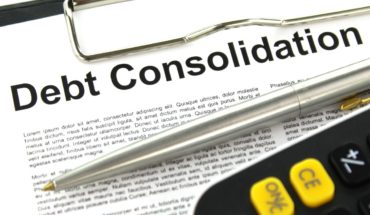
When you have got mired in debt and are having trouble in making the minimum payments by the due dates, debt consolidation can seem to be a boon indeed. With debt consolidation, you can aggregate all your outstanding credit card balances as well as personal loans and lines of credit into one amount for which, a loan of an equivalent amount is taken out, usually at a lower rate of interest and a more affordable monthly payment.
However, unless you really understand why you are in such a bad financial situation that requires debt consolidation, it is very likely that you will end up in an even worse situation than before. According to experts, debt consolidation is not a permanent solution to your financial circumstances because the ground realities really don’t change. Some common mistakes that consumers make when consolidating debt and how to avoid them:
Not Acknowledging the Root of the Problem
It is commonly seen that people turn to consolidating debt when their debt levels have gotten out of hand and they are unable to make the minimum monthly payments. However, these are typically kneejerk reactions and really do not address the real issues of excessive spending. Normally, it is when debts cross $10,000 that people start considering a debt consolidation loan, however, these types of debts do not crop up overnight and resolving them is not easy too. Even though people may vow to change their lifestyles, lifestyle changes are not easy to stick to and sooner or later they are back in the same debt trap. The only way to prevent this from happening is to acknowledge that you have a financial problem and that you cannot wish it away by sticking to the same lifestyle as before. You need to make sacrifices, enforce discipline and change your behavior for good. If need be, seek professional help from financial counselors who will analyze your spending habits and suggest ways of cutting down on your expenditure, teach you to make and stick to budgets, and monitor your spending.
Not Researching Your Consolidation Options
Even though you may not know of them, there are quite a few ways of consolidating your debts; you can get a new secured or unsecured loan, transfer your balances to a new line of credit or even pool all your balances to a new credit card with a zero percent balance transfer scheme. You also have the option of going in for debt settlement or one of the many debt management plans. Under debt settlement, you can negotiate with your creditors to accept a part payment of the debt as a full settlement. There are specialized agencies that can do this for you for a fee that depends on the amount of debt they are able to reduce.
On the other hand, debt consolidation involves working with a credit counseling agency and your creditors to restructure your debt with a lesser rate of interest or a repayment period that is longer. Payments are made to the agency, which in turn disburses the amounts to the creditors for a professional fee. Every method has its own pros and cons, and what is best for you depends on your own particular circumstances. If a wrong method is selected, it may end up doing more harm than good. It is especially important for you to understand the upfront fees and charges so that you make the best possible choice. It is a very good idea to read up some of the online debt consolidation reviews to discover how to steer clear of high application and processing charges.
Consolidating the Wrong Debts
Because they do not understand the process, many customers include all the loans that they have into the consolidation process and end up paying off even the loans that have low-interest rates such as certain credit cards and student loans. When this is done, you end up replacing low-interest rates with higher interest rates and increasing your interest expense just for the convenience of a single monthly payment. For your consolidation exercise to have the maximum effect, you need to list out all the debts you have, the amounts that are outstanding, and their APRs, and only pay off the ones that have interest rates that are higher than that of the consolidation loan. You also need to factor in the effect of the fees and charges to arrive at the APR of the consolidation loan.
Conclusion
Consolidating debts can be a very complex process and if you trip upon the basics, you could land yourself up in bigger trouble than before. The best way is to read up on all the alternatives, as well, as the pros and cons of each, and then approach a professional agency to help you out with the loan.
Author bio: Mike Ellison is a senior financial consultant working at one of the leading debt relief agencies. Mike spends a great deal of his time trying to understand why his clients are unable to manage their finances so that he is able to offer the best advice to them.


